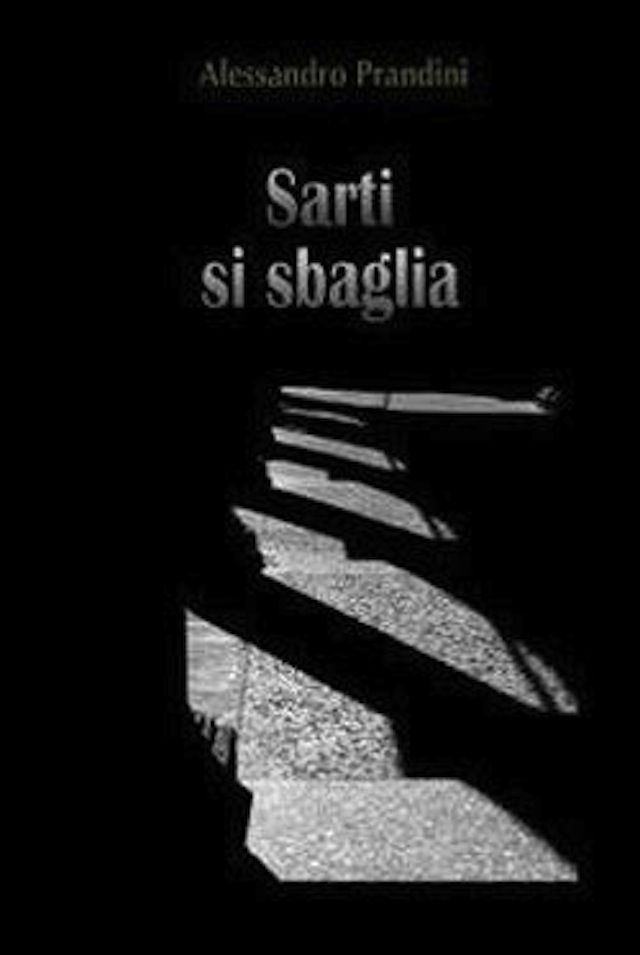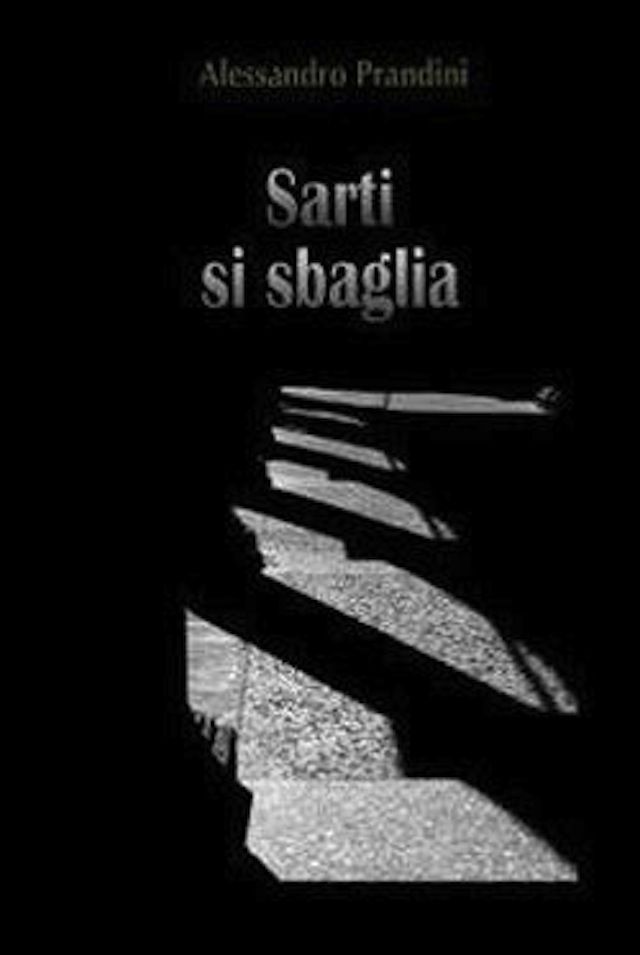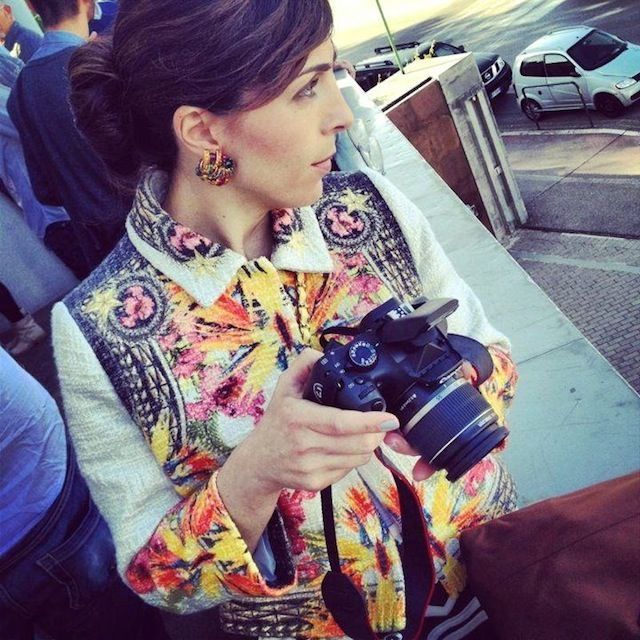Qual’è la verità che sta cercando il Commissario Sarti nel suo ultimo caso? Un cadavere viene ritrovato in un appartamento, la cui porta è chiusa dall’interno e il revolver è accanto alla salma…un suicidio? Questa sembra la spiegazione più plausibile, se non fosse che il corpo senza vita non appartiene a una persona qualunque, ma ad un compagno d’infanzia del Commissario, che non molto tempo prima della morte lo ha voluto incontrare. Per quale ragione? Quello che poteva sembrare un incontro di piacere era in realtà una richiesta di aiuto, ma da chi? Da che cosa? Difficile rimanere lucidi e imparziali quando entrano in gioco i sentimenti, quando l’unica cosa a cui si ha necessità di credere non corrisponde al vero e quando alla luce di nuovi fatti occorre essere pronti ad accettare una verità diversa dalla precedente. A dirigere le indagini ovviamente il protagonista, appena cinquantenne, malinconico, romantico, affiancato dalla giovane e intraprendente Sara Fiorentino. Due personalità diverse, ma capaci di stringere una grande complicità che si traduce in una sinergia vincente per risolvere l’indagine. Questa è la trama, brevemente riassunta, del libro di Alessandro Prandini. Ho avuto il piacere di conoscerlo e di fargli qualche domanda. . Alessandro, raccontaci com’è nata l’idea di scrivere un giallo? Mi hanno sempre appassionato i romanzi polizieschi. Sono un amante di Agatha Christie, del suo Poirot, delle sue atmosfere intriganti e piene di dettagli, della sua capacità di distrarre il lettore, pur fornendogli gli indizi, e di lasciarlo in suspense fino alla fine per poi colpirlo con una conclusione inaspettata. Altrettanto geniale, anche se in modo diverso, Simenon con il suo Maigret, che si immedesima nei personaggi e cerca di capirne le personalità, dando più risalto alle motivazioni umane piuttosto che agli indizi materiali; e per finire sono affascinato dal modo di scrivere di Andrea Vitali, che è un po’ il mio maestro di stile. Ho trasformato la mia passione in qualcosa di concreto, ispirandomi a questi tre scrittori, ma dando la mia versione di poliziesco, amo definirlo uno “Slow Book”, perché non ha il ritmo incalzante del giallo e si sofferma, spesso e volentieri, sul carattere dei diversi personaggi. Parlaci del protagonista, in qualche modo ti ci rivedi? Il protagonista è dichiaratamente il Commissario, a cui dovrò cambiare il nome per motivi di etichetta, ma proprio per questa mia dedizione nel descrivere così minuziosamente i personaggi, forse dovrei ammettere che, sotto certi aspetti, è Sara Fiorentino a ricoprire il ruolo principale del romanzo. Lui ha già vissuto molti anni della sua carriera in polizia, ama anche altro al di fuori del lavoro, scrive poesie, suona il piano, preferisce rimanere dietro le quinte, ha un atteggiamento maturo nei confronti della vita e il suo cinquantesimo compleanno è una sorta di giustificazione del suo atteggiamento. Al contrario, Sara ama la sua professione più di ogni cosa, dedita al lavoro, meticolosa, puntuale, insomma rappresenta tutto ciò che al Commissario manca. Se mi ci rivedo? Beh, sotto certi aspetti si, sotto altri vorrei avere tante qualità che non ho e che loro invece hanno. Quanto tempo hai impiegato a scrivere il tuo primo libro? Di libri iniziati e mai terminati, lasciati poi in un cassetto dimenticato, ce ne sono stati tanti, ma con questo è stato diverso, è stato il primo libro finito e ho impiegato circa un anno per la stesura. Quando hai pensato alla storia, il finale è rimasto lo stesso che avevi immaginato inizialmente oppure è stato modificato? La mia fortuna/sfortuna è di lavorare non troppo vicino da dove vivo, il che comparta un tragitto in auto abbastanza lungo e al tempo stesso una buona quantità di tempo per pensare… è stato proprio in uno di questi viaggi che è arrivata l’ispirazione e la prima cosa che ho immaginato è stato proprio il finale…ovviamente non poteva cambiare! Cosa farà il Commissario dopo questa significativa esperienza? Certamente non starà con le mani in mano e io con lui… la seconda “puntata” è già nella mia testa e in parte già su carta. Se ti chiedessi qualche titolo di film, sul genere, che proprio non dovrei perdermi? Sicuramente “Sleepers”, un grande esempio di verità nascosta, “Seven” per la sua genialità, un capolavoro cinematografico del genere e infine “Sherlock Holmes” per l’insuperabile acutezza. . La seconda edizione rivisitata del libro sarà presentata ufficialmente giovedì 21 giugno presso MABIC, Maranello Biblioteca Cultura, alle ore 21. Siete curiosi di sapere qual’è la verità? E sopratutto quale sarà il nuovo titolo del libro e quello assegnato al Commissario? . PER ACQUISTARE IL LIBRO CLICCA QUI
[youtube width=”900″ height=”530″ video_id=”N0JADzEBZH8″]
[youtube width=”900″ height=”530″ video_id=”jusBRbwZ36I”]
[youtube width=”900″ height=”530″ video_id=”fH3YaVLR28I&feature=related”]
What’s the hidden truth that Detective Sarti is trying to reveal in his last case? A corpse is found in a flat, the door is locked from the inside and the gun is next to the body….a suicide? This seems to be the most probable hypothesis but the corpse is that of an old friend of the detective himself and he met him just a few days before his death. What for? That meeting was not for pleasure but it was a call for help…but why? It’s difficult to stay firm and analytic when feelings come into play, when the truth is not that we imagined and when we are forced to accept an awkward truth. The protagonist, the fifty year-old, melancholic and romantic Detective Sarti conducts the investigation, together with the young and proactive Sara Fiorentino. Two different personalities able to work in concert and create a winning synergy to solve the case. This is the plot, in brief, of Alessandro Prandini’s latest novel. I had the pleasure to meet him and I asked him some questions. Alessandro, where did the idea of writing a crime story spring from? I have always been fond of detectives stories, I love Agatha Christie’s books and her detective Poirot, the intrigues and detailed descriptions, her capacity to distract the reader yet collecting clues and keeping this sense of suspense until the end of the book with an unexpected conclusion to the case. I also love Simenon and Maigret, who empathizes with the characters and tries to understand their personality, focusing on feelings more than on evidence, and I am also fascinated by Andrea Vitali’s way of writing, he is my style-master. I turned my passion into something real, taking my inspiration from these three writers yet giving my personal vision of a detective story, mine can be defined as a “Slow Book”, because it doesn’t have the pressing rhythm of crime stories as I often indulge in the personality and feelings of my characters. Tell us something about the main character, does he mirror your personality somehow? The protagonist of the book is Detective Sarti, to whom I will have to change the name for private label reasons, but to be honest I have to say that, under certain aspects, Sara Fiorentino can be considered the real protagonist. The detective has already had a long career, he loves his job but he also writes poems, he plays the piano, he doesn’t like to be in the spot light, he is quite reserved and mature. On the contrary, Sara is completely dedicated to her job, she is precise, punctual, she is everything that the detective is not. If I identify myself with them? Well, for some aspects maybe yes, but at the same time I would like to have some of their virtues that I don’t have. How long did it take to write this novel? I started many books and I left them incomplete, but this is different, I started and finished it and it took me almost a year to write it. When you imagined the story at first did you imagine this ending or did you change it while writing the novel? , Luckily/unluckily I work quite far from where I live so I have to commute everyday and I have time to think… during one of my journeys I found my inspiration and the first thing I imagined was the end of the book…Of course I couldn’t change it! What will the detective do after this case? He will not sit about of course and I won’t too…. The second “episode” is already on my mind and partly written. If I ask you a film that couldn’t be missed for any reason? “Sleepers” for sure a marvellous example of hidden truth, “Seven” because it’s brilliant and “Sherlock Holmes” the subtlety par excellence. . The second reviewed edition of the book will be officially presented on June 21 at MABIC, Maranello Biblioteca Cultura, at 9 p.m. Are you eager to find out the hidden truth? And what will be the detective’s next case?. TO PURCHASE THE BOOK, CLICK HERE












